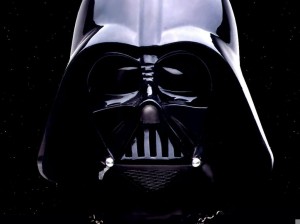 I was four years old when I first saw Darth Vader.
I was four years old when I first saw Darth Vader.
I didn’t even know what evil was at the time—but the Dark Lord of the Sith soon remedied that. Darth Vader would define and, ultimately, personify evil for me as a child. And as my understanding of evil deepened, my appreciation for good grew.
I was six years old when I heard Darth Vader tell Luke Skywalker that he was his father. “Liar,” I thought—along with every other young boy in the world. But—in true Star Wars fashion—I had a bad feeling about it. “Vader isn’t tricky,” I thought. “He’s in your face. He doesn’t play mind games, he just strangles you from across the room.”
I remember watching the last movie as a nine-year-old. In the opening scene, Darth Vader walks out of a ship with The Imperial March pounding away in the background—I was literally squirming in my seat.
I remember feeling sorry for Luke because he spent most of the movie believing that Darth Vader could be saved. Meanwhile, I’m thinking, Dude, he’s Darth Vader for crying out loud. Give it a rest. He’s evil. He can’t turn.
In the end, Vader did turn. He changed. He came back. Darth Vader found his good.
At nine years old I watched the most evil person I knew—the one who personified the word for me—discover a hidden good buried deep within him. And that good was enough to change everything.
Looking back, the redemption of Darth Vader was a watershed moment in my life. I began to regard people differently. After all, if there was good hiding in Darth Vader, there might be good hiding in anyone. And if Darth Vader could change, then maybe anyone could change.
Needless to say, I’ve found these principles validated time and again over the last few decades.
What events in your life helped form the way you see people?
- Click to share on X (Opens in new window) X
- Click to share on Facebook (Opens in new window) Facebook
- Click to share on LinkedIn (Opens in new window) LinkedIn
- Click to share on Reddit (Opens in new window) Reddit
- Click to email a link to a friend (Opens in new window) Email
- Click to print (Opens in new window) Print